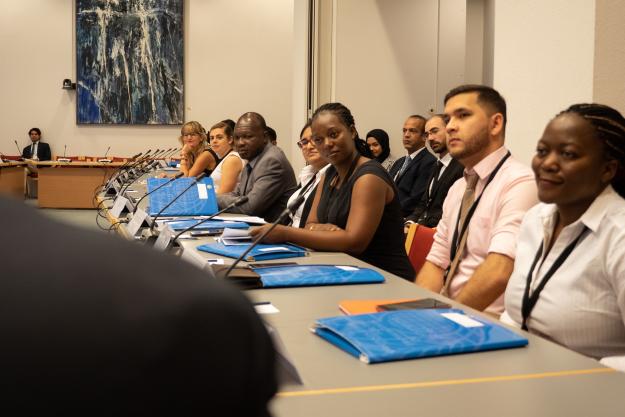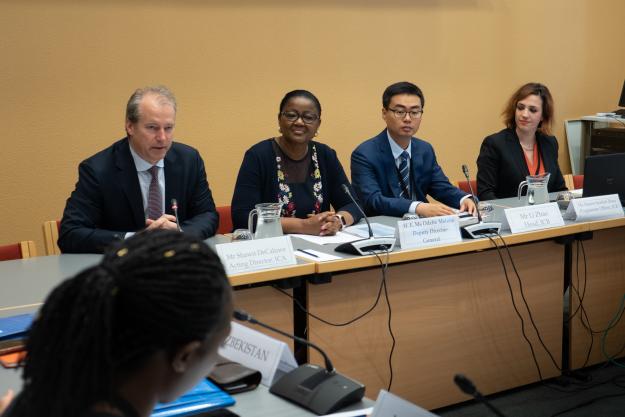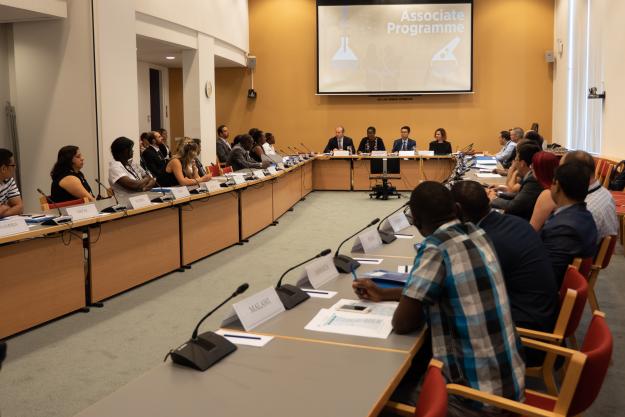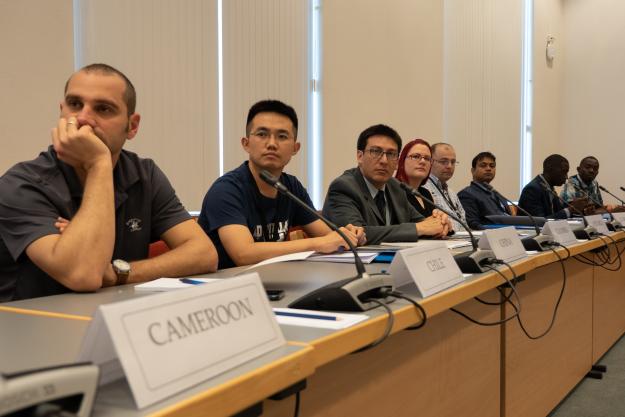
THE HAGUE, the Netherlands – 26 July 2019 – A new edition of the Associate Programme commenced today at the Organisation for the Prohibition of Chemical Weapons (OPCW) Headquarters in The Hague, marking the 20th anniversary of this flagship OPCW capacity-building project.
The Deputy Director-General of the Organisation, H.E. Ambassador Odette Melono, opened the Programme and welcomed 32 associates representing 32 OPCW Member States. Citing the global focus and the emphasis on experiential learning as the two key strengths of the training, she encouraged the participants to share knowledge and best practices.
“We will continue to foster international cooperation and cultivate relevant expertise among our stakeholders,” underlined Ambassador Melono. She further encouraged the participants to serve as advocates “for the implementation of the Convention, as well as for the promotion of the peaceful uses of chemistry”.
Held at The Hague and renowned institutions around the world, the nine-week training offers a unique combination of theoretical and practical elements on the CWC implementation as well as on chemical safety and security.

After an introductory week at the OPCW Headquarters, the associates attend lectures on chemical engineering at the University of Surrey, United Kingdom, where they immerse themselves in simulated industry environments, including process plant operations and research and development facilities.
Mentored by professionals, the associates then receive training at some of the world’s biggest chemical facilities to gain hands-on experience in chemical safety and security. Chemical plants taking part in this year’s Programme are located in Argentina, Brazil, Chile, China, Finland, Germany, Indonesia, Italy, Malaysia, Poland, Spain and Qatar, with Chilean industry providing support for the first time.
This year’s participants represent the following countries: Afghanistan, Algeria, Argentina, Botswana, Brazil, Burkina Faso, Burundi, Cameroon, Chile, China, Colombia, Costa Rica, Georgia, India, Jamaica, Malawi, Malaysia, Moldova, Namibia, Nepal, Nigeria, Peru, Senegal, Serbia, South Africa, Sri Lanka, Tajikistan, Togo, Trinidad and Tobago, Uganda, Uzbekistan, and Zimbabwe.

Background
Since its inception in 2000, the OPCW Associate Programme has evolved into a major international training project aiming to enhance OPCW Member States’ economic and technological capacities, as stipulated by Article XI of the Chemical Weapons Convention.
To date, nearly 500 experts from 121 countries have participated in the Programme.
The Associate Programme is made possible through continuing support from the OPCW Member States and various partners, including representatives from the chemical industry, academia and international entities such as the World Customs Organization (WCO), European Chemical Industry Council (CEFIC), European Association of Chemical Distributors (FECC), European Chemicals Agency (ECHA), Dutch Customs Authorities, City and Port of Rotterdam, and Technical University of Delft (TU Delft).
As the implementing body for the Chemical Weapons Convention, the OPCW, with its 193 Member States, oversees the global endeavour to permanently eliminate chemical weapons. Since the Convention’s entry into force in 1997, it is the most successful disarmament treaty eliminating an entire class of weapons of mass destruction.
Over 97% of all chemical weapon stockpiles declared by possessor States have been destroyed under OPCW verification. For its extensive efforts in eliminating chemical weapons, the OPCW received the 2013 Nobel Peace Prize.
More Information

